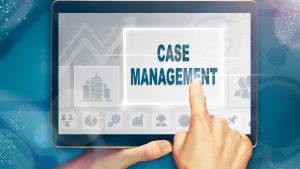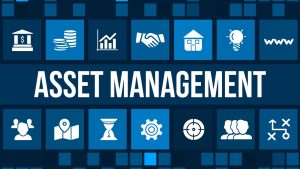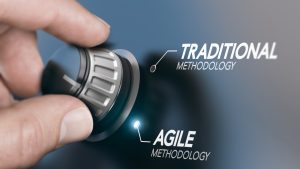Do you find it challenging to handle business operations while managing the relationship with your customers? No need to worry, as the technological world has found an ideal answer to this problem. Customer Relationship Management (CRM) systems are designed and developed to expedite all your customer-related issues under one roof. With the capabilities of this software, you can smoothly have a grip on your customer care and customer engagement initiatives through the insights it offers you. However, did you know that there are four types of CRM systems in the scenario?
In this article, we will explore all four of them with their unique features and functionalities and offer you an understanding of their special applications.
We will understand
What is a CRM System?

- You know that a business has two types of customer bases. One is the one they are having right at the moment and the other is the people who can be potential customers in the future. These are software tools designed to manage interactions and relationships with both current and potential customers.
- They provide businesses with a centralised platform to store customer data and track interactions across various channels such as email, phone calls, social media, website visits, etc. Plus, they help you analyse customer behaviour and preferences.
- CRM systems help businesses expedite sales processes and improve customer service. However, the power does not end there! It also enhances marketing strategies by providing insights into customer needs and trends. These are real-time data, and the system has the ability to analyse both historic and up-to-date data before offering some powerful insights.
- They help with personalised communication and targeted marketing campaigns, backing up stronger customer relationships and loyalty.
- We should not forget that CRM systems can offer automation features to streamline repetitive tasks, which makes the whole business process 10 times faster.
The Top 4 Types of CRM Systems
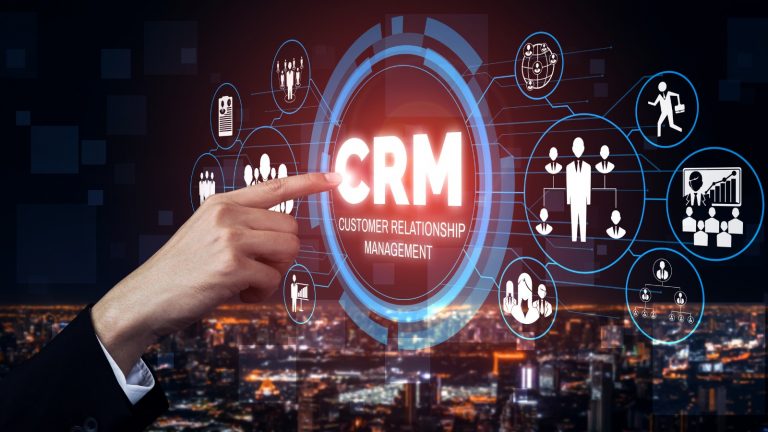
Analytical CRM
This is a type of Customer Relationship Management software focused on analysing customer data to gain insights and inform strategic decision-making.
It employs data mining, statistical analysis, and predictive modelling techniques to identify patterns, trends, and correlations within customer information. As it can analyse customer interactions, purchasing behaviour, and preferences, analytical CRM helps businesses understand their customers better. Further, they help predict future trends and tailor marketing efforts more effectively.
It also encourages businesses to segment their customer base in the first place. Then they help identify high-value customers and target them with personalised offers and recommendations.
It is quite visible that analytical CRM aids in forecasting sales and optimising marketing campaigns eventually.
This is absolutely effective, especially in a scenario when the company faces tight competition from rivals in the industry to cater to the best interests of the customers.
Collaborative CRM
The latter is a core type of CRM software that focuses on facilitating communication and collaboration among different departments within an organisation to better serve customers.
It integrates various communication channels, such as email, phone, chat, and social media, enabling seamless sharing of customer information and interactions across teams.
With its ability to centralise customer data and communication, collaborative CRM streamlines teamwork above all. It also improves response times and ensures consistency in customer interactions. It allows sales, marketing, and customer service teams to work together efficiently, share insights, and coordinate efforts to provide personalised and timely support to customers.
In this interconnected business environment, where customer expectations for seamless experiences are high, collaborative CRM is quite important for businesses to break down barriers, as this enhances internal communication and delivers exceptional customer service that drives satisfaction.
Operational CRM
As you can see, this is fundamental CRM software that is primarily concerned with automating and streamlining customer-facing processes such as sales, marketing, and service automation.
It serves as a centralised database where businesses can manage customer interactions, track leads, and automate tasks like contact management, lead scoring, and sales forecasting.
If we further elaborate, operational CRM helps businesses efficiently manage customer information and track sales pipelines. Plus, it automates routine tasks to improve productivity and efficiency.
The latter can also provide a comprehensive view of customer interactions and automate repetitive tasks. This operational CRM enhances customer service, increases sales effectiveness, and boosts marketing efficiency.
If you still think about why you need this for your business in Singapore, well, operational CRM is essential for businesses to optimise their operations and deliver superior customer experiences in the first place. The obvious result is maximised ROI and operational success within a shorter time!
Strategic CRM
Strategy comes above all else when it comes to business success through marketing. This is exactly what this type of CRM pinpoints!
Strategic CRM specifically focuses on long-term relationship building and strategic planning to maximise customer value and loyalty.
But how is this different from the other types? Unlike operational CRM, which deals with day-to-day interactions, strategic CRM is concerned with overarching business goals and objectives. It involves analysing customer data and market trends to develop tailored strategies for acquiring, retaining, and growing high-value customer relationships.
On the one hand, strategic CRM enables businesses to segment their customer base, identify key customer segments, and customise marketing campaigns and services to meet specific needs and preferences. On the other hand, it builds up deeper customer relationships and enhances customer satisfaction. The latter
helps businesses increase customer lifetime value, reduce churn, and differentiate themselves in the marketplace.
After knowing the best benefits of this, who would stay away from this strategic CRM? Yes, it is indeed indispensable for businesses seeking to build enduring relationships and drive sustainable growth.
One tool, but a sustained customer relationship!
Top Features to look for in CRM System
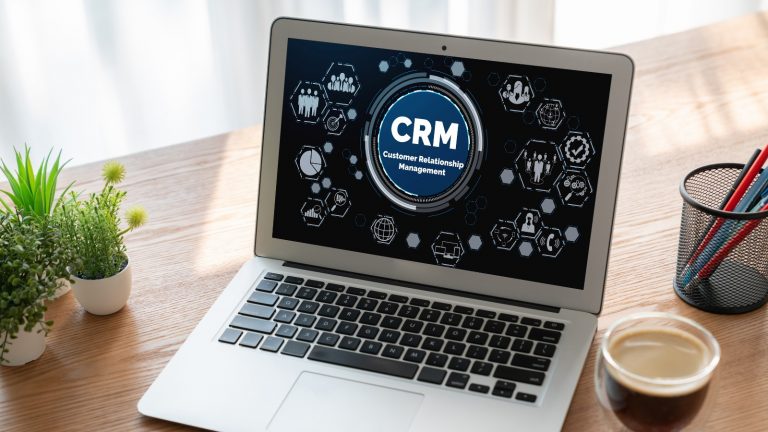
Contact Management
This is certainly a top feature to prioritise in a CRM system due to its central role in encouraging strong customer relationships. If your CRM has this, it allows your business to efficiently organise and access customer information, including contact details, communication history, preferences, and interactions across various channels.
This indicates that you can tailor your marketing initiatives and keep regular contact with your customers through their preferred channels, like SMS, email, social media, etc.
Interaction Tracking
This helps businesses monitor and manage customer engagements across various touchpoints. If your CRM can track interactions such as emails, phone calls, meetings, and social media interactions, businesses gain valuable insights into customer preferences, behaviours, and needs.
What is the point of continuing a marketing campaign when there are no interactions from the customers?
Marketing Automation
Since the CRM must automate repetitive tasks such as email campaigns, lead nurturing, and social media posting, businesses can save time and resources while delivering targeted and personalised marketing messages to their audience.
Marketing automation allows for the segmentation of leads based on behaviours and demographics, enabling more tailored communication strategies.
With this knowledge, you can easily design your next marketing campaign.
Workflow Automation
This is a critical feature in CRM systems as it streamlines and standardised business processes, improving efficiency and productivity. Your CRM will be able to automate repetitive tasks such as lead assignments, follow-up reminders, and data entry, etc.
If this occurs, workflow automation minimises manual intervention, reducing the risk of errors and freeing up valuable time for employees to focus on higher-value activities.
Pipeline Management
This provides businesses with a clear and structured view of their sales process, from lead generation to conversion.
As you can see, it helps visualise the sales pipeline, and with this data in hand, businesses can track the progress of leads and opportunities at each stage, identify bottlenecks, and forecast revenue more accurately.
Lead Generation
This feature assists businesses in identifying and capturing potential customers for their products or services.
Through lead generation tools integrated into the CRM system, businesses can gather valuable information about prospects, such as contact details, demographics, and interests.
This data allows sales and marketing teams to target their efforts more effectively, tailor messaging to specific audiences, and nurture leads through the sales funnel.
Email Marketing
Email marketing emerges as a critical feature in CRM systems due to its effectiveness in reaching and engaging customers at scale.
Integrated email marketing tools within CRM systems enable businesses to create, send, and track email campaigns seamlessly.
With the large volume of customer data stored in the CRM database, businesses can personalise email content, segment audiences, etc. Also, they can schedule automated campaigns based on customer behaviours and preferences.
Calendar/Reminder System
It helps businesses stay organised, efficient, and on top of their customer interactions.
Integrated into the CRM platform, this feature allows users to schedule appointments, set reminders for follow-up tasks, and track important deadlines related to sales opportunities or customer service requests.
If you have the ability to schedule and set reminders within the CRM system, your business can ensure timely and proactive engagement with customers, leading to improved customer satisfaction and retention.
Enhancing Customer Engagement with the CRM System
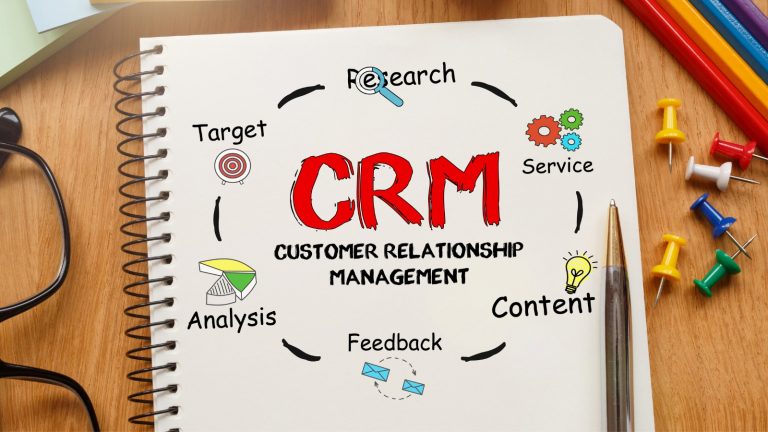
The time has come to walk away from the manual handling of customer-related marketing campaigns and start moving forward with the robust tools that help you accomplish your business missions easily. Why spend too much time, money, and labour working when you can automate all those tasks under one technological canopy? This is exactly the point of developing CRM software for the business framework. A reliable software partner will help you achieve what you expect within a short time with specially tailored marketing campaigns.


